BMW X1 VS Kia Sportage
In the competitive compact SUV segment, the BMW X1 stands out with its sporty handling and premium interior, appealing to those who value performance and luxury. On the other hand, the Kia Sportage offers a spacious cabin and user-friendly technology, making it an excellent choice for families and budget-conscious buyers. Ultimately, the decision between these two models will come down to personal preferences regarding style, comfort, and driving dynamics.
BMW X1
The new BMW X1 effortlessly blends sporty elegance with practical functionality, making it a standout choice in the compact SUV segment. Inside, the sophisticated cabin design is complemented by high-quality materials and cutting-edge technology, creating a welcoming and advanced driving environment. On the road, the vehicle's agile handling and responsive performance promise an engaging driving experience, whether navigating urban streets or embarking on longer journeys.
detailsKia Sportage
The Kia Sportage stands out in the crowded SUV market with its elegant design and advanced features. This vehicle offers a refined driving experience, combining comfort with responsive handling. Inside, the Sportage boasts a well-appointed cabin that provides ample space for passengers and luggage, making it an ideal choice for both city driving and longer journeys.
detailsThe compact SUV segment is booming, and two contenders that stand out prominently are the BMW X1 and the Kia Sportage. Both vehicles boast a blend of functionality, style, and a plethora of modern features that cater to the needs of today’s drivers. In this article, we’ll take a closer look at how these two models compare in terms of technical aspects and innovations.
Powertrains and Performance
The BMW X1 offers a diverse lineup of powertrains, ranging from efficient petrol and diesel engines to plug-in hybrids. The engines provide performance outputs ranging from 150 to 326 horsepower, with the high-performance variant achieving a 0-100 km/h time of just 5.4 seconds. In terms of fuel consumption, the X1 is commendable, with figures as low as 4.6 L/100km for diesel variants. Additionally, the option of diesel mild-hybrid engines improves both efficiency and torque response, making it a strong contender for those who value performance alongside practicality.
On the other hand, the Kia Sportage also impresses with its variety of engine options, including mild hybrids, full hybrids, and plug-in hybrids. With power outputs ranging from 136 to 252 horsepower, the Sportage's most potent engine can achieve a 0-100 km/h time of 8.3 seconds. Fuel efficiency is also competitive, with hybrids delivering consumption figures of around 5.6 L/100km. The Sportage is notably well-suited for those who prioritize eco-friendliness without sacrificing performance.
Transmission and Drive Options
The BMW X1 comes with a smooth automatic transmission as standard, ensuring a seamless driving experience whether you're navigating urban streets or cruising on the highway. The availability of both front-wheel and all-wheel drive enhances its versatility, catering to various driving conditions.
Similarly, the Kia Sportage offers a choice between manual and automatic transmissions, allowing a degree of customization depending on driver preference. The Sportage also provides front-wheel drive and all-wheel drive options, making it a suitable choice for those who often encounter varying road conditions.
Interior Space and Comfort
Both SUVs emphasize comfort with spacious interiors designed for five passengers. The BMW X1 provides a trunk capacity ranging from 490 to 540 liters, depending on the variant. Its high-quality interior materials and ergonomic design contribute to a premium feel that is expected from the BMW brand.
The Kia Sportage narrowly surpasses the X1 in trunk space with capacities up to 587 liters, making it a practical choice for families or those who frequently carry substantial cargo. Kia's modern design language and tech-savvy features also enhance the overall driving experience, with thoughtful touches that prioritize passenger comfort.
Innovative Features and Technology
In today's automotive landscape, technology is a significant differentiator. The BMW X1 is equipped with the latest iDrive system, featuring a high-resolution display, advanced navigation, and seamless smartphone integration. The suite of safety features includes lane-keeping assist, adaptive cruise control, and parking assistance, setting a high standard in vehicle safety and convenience.
On the flip side, the Kia Sportage boasts an impressive array of technology, including a user-friendly infotainment system with enhanced connectivity features. The inclusion of advanced driver-assistance systems, like highway driving assist and forward collision-avoidance assist, underscores Kia's commitment to providing a safe driving environment.
Conclusion: Which SUV Reigns Supreme?
When comparing the BMW X1 and Kia Sportage, prospective buyers will find that both vehicles excel in their own right. The X1’s performance-driven approach, luxurious interior, and BMW’s reputation for quality make it a favorite among enthusiasts. Meanwhile, the Kia Sportage stands out with its practicality, spaciousness, and advanced technology, offering fantastic value for the money.
Ultimately, the choice between the two boils down to individual preferences and requirements. For those prioritizing performance and luxury, the BMW X1 may be the optimal choice. Conversely, for consumers looking for economy and practicality, the Kia Sportage presents itself as an excellent option. Regardless of your choice, both SUVs are leading contenders in the compact segment.
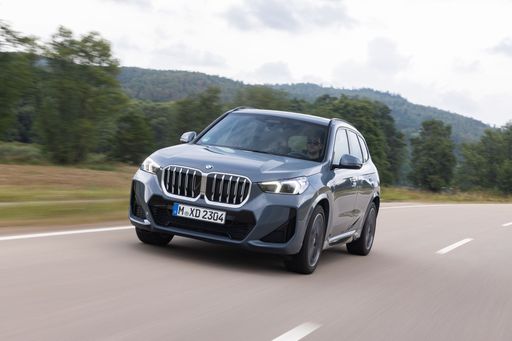 @ press.bmwgroup.com
@ press.bmwgroup.com
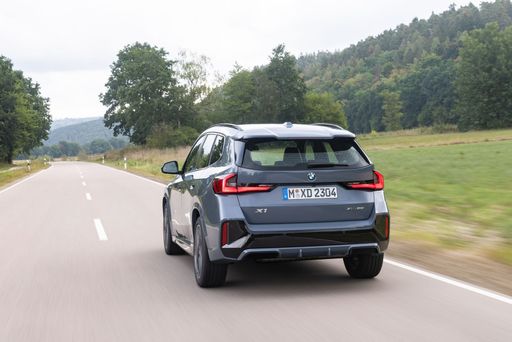 @ press.bmwgroup.com
@ press.bmwgroup.com
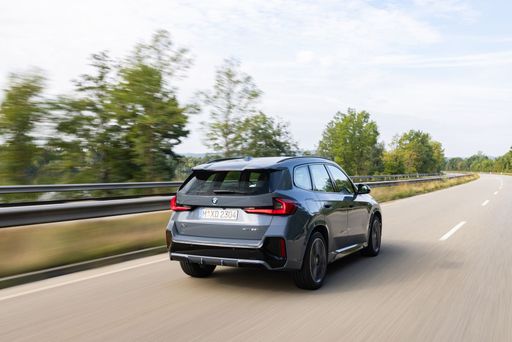 @ press.bmwgroup.com
@ press.bmwgroup.com
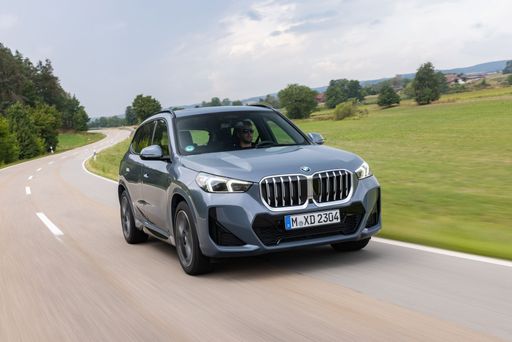 @ press.bmwgroup.com
@ press.bmwgroup.com
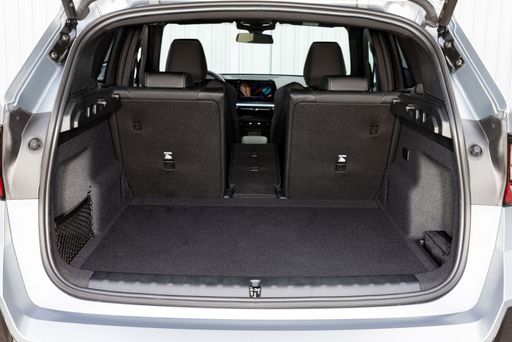 @ press.bmwgroup.com
@ press.bmwgroup.com
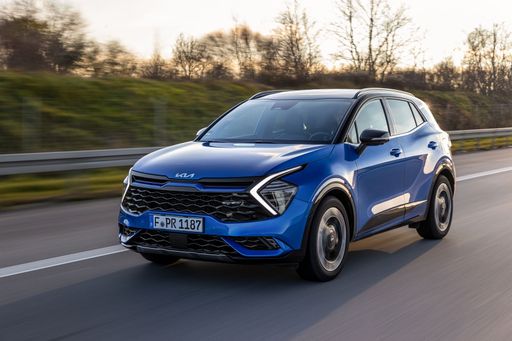 @ press.kia.com
@ press.kia.com
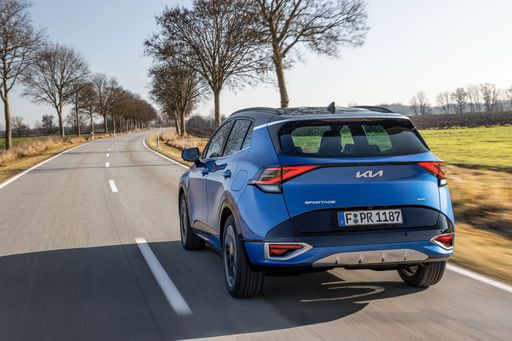 @ press.kia.com
@ press.kia.com
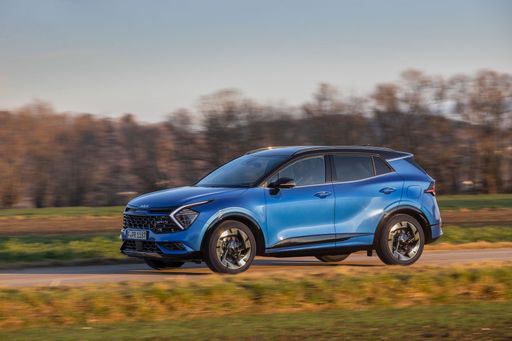 @ press.kia.com
@ press.kia.com
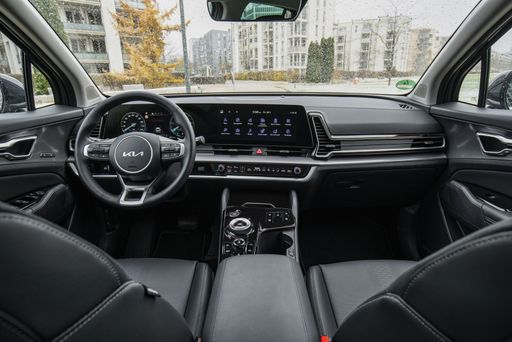 @ press.kia.com
@ press.kia.com

|

|
|
|
|
Costs and Consumption |
|
|---|---|
|
Price
about 37600 - 54800
£
|
Price
about 29700 - 44700
£
|
|
Consumption L/100km
0.8 - 7.7
L
|
Consumption L/100km
1.2 - 7.2
L
|
|
Consumption kWh/100km
-
|
Consumption kWh/100km
-
|
|
Electric Range
83
km
|
Electric Range
64
km
|
|
Battery Capacity
14.2
kWh
|
Battery Capacity
-
|
|
co2
17 - 175
g/km
|
co2
28 - 162
g/km
|
|
Fuel tank capacity
47 - 54
L
|
Fuel tank capacity
42 - 54
L
|
Dimensions and Body |
|
|
Body Type
SUV
|
Body Type
SUV
|
|
Seats
5
|
Seats
5
|
|
Doors
5
|
Doors
5
|
|
Curb weight
1575 - 1935
kg
|
Curb weight
1526 - 1905
kg
|
|
Trunk capacity
490 - 540
L
|
Trunk capacity
526 - 587
L
|
|
Length
4500 - 4505
mm
|
Length
4515
mm
|
|
Width
1845
mm
|
Width
1865
mm
|
|
Height
1622 - 1642
mm
|
Height
1650
mm
|
|
Payload
490 - 500
kg
|
Payload
510 - 565
kg
|
Engine and Performance |
|
|
Engine Type
Diesel, Petrol, Diesel MHEV, Petrol MHEV, Plugin Hybrid
|
Engine Type
Diesel MHEV, Petrol MHEV, Full Hybrid, Petrol, Plugin Hybrid
|
|
Transmission
Automatic
|
Transmission
Manuel, Automatic
|
|
Transmission Detail
Automat. Schaltgetriebe (Doppelkupplung)
|
Transmission Detail
Manual Gearbox, Automat. Schaltgetriebe (Doppelkupplung), Automatic Gearbox
|
|
Drive Type
Front-Wheel Drive, All-Wheel Drive
|
Drive Type
Front-Wheel Drive, All-Wheel Drive
|
|
Power HP
136 - 326
HP
|
Power HP
136 - 252
HP
|
|
Acceleration 0-100km/h
5.4 - 9.2
s
|
Acceleration 0-100km/h
8.3 - 11.6
s
|
|
Max Speed
190 - 250
km/h
|
Max Speed
180 - 194
km/h
|
|
Torque
230 - 477
Nm
|
Torque
265 - 350
Nm
|
|
Number of Cylinders
3 - 4
|
Number of Cylinders
4
|
|
Power kW
100 - 240
kW
|
Power kW
100 - 185
kW
|
|
Engine capacity
1499 - 1998
cm3
|
Engine capacity
1598
cm3
|
|
Top speed
190 - 250
km/h
|
Top speed
180 - 194
km/h
|
General |
|
|
Model Year
2023 - 2024
|
Model Year
2024
|
|
CO2 Efficiency Class
D, E, B, F
|
CO2 Efficiency Class
D, E, F, B
|
|
Brand
BMW
|
Brand
Kia
|
BMW X1
The New BMW X1: A Fusion of Innovation and Performance
For those in search of a luxury SUV that masterfully combines technical innovation with driving pleasure, the BMW X1 stands as a paragon of design and engineering excellence. As part of the competitive compact SUV segment, the BMW X1 offers a robust array of features targeted towards both the tech-savvy and the driving enthusiast.
Advanced Engine Options
The BMW X1 delivers a versatile range of powertrains to suit the specific needs of different drivers. From the efficient diesel engines to cutting-edge plug-in hybrid variants, there’s a model for every preference. The diesel variants, including mild-hybrids, provide a balance between fuel efficiency and power delivery. Petrol engines, on the other hand, offer spirited performance with a more traditional feel.
Efficiency Meets Performance
The BMW X1's remarkable range of power, from 136 PS to an impressive 326 PS, caters to diverse driving needs. Models fitted with mild-hybrid technology afford drivers reduced fuel consumption and emissions, with the plug-in hybrid leading the field in eco-efficiency with consumption figures as low as 0.8 L/100km and an electric range of up to 83 km.
Technological Innovation
Stepping inside the BMW X1, drivers are greeted with an intuitive cockpit, seamlessly integrating the latest BMW technology. An advanced infotainment system offers connectivity at the touch of a button, while an array of driver assistance systems ensure that safety and convenience are at the forefront.
Design and Comfort
The BMW X1 exudes a powerful presence on the road with its refined SUV aesthetics. Offering substantial interior space, it comfortably accommodates up to five passengers with ample boot capacity ranging from 490 to 540 litres. BMW also offers various trim levels, including the luxurious M Sport package, that enhance both the aesthetic and dynamic appeal.
Dynamic Driving Experience
BMW enthusiasts will appreciate the dynamic handling characteristics synonymous with the brand. Whether it's the front-wheel drive or the xDrive all-wheel system, the BMW X1 delivers responsive handling and a smooth driving experience, making it ideal for both urban and motorway driving scenarios.
Conclusion
The BMW X1 raises the bar for compact SUVs, offering a harmonious blend of innovation, efficiency, and driving pleasure. For those seeking a vehicle that stands out both in terms of aesthetics and technology, the X1 is undoubtedly a worthy contender.
Kia Sportage
The Kia Sportage: A Technological Masterpiece
The Kia Sportage has been a stalwart in the SUV segment, consistently offering excellent value, style, and performance. In its latest iteration, the Sportage pushes the boundaries with a fusion of advanced technology and innovative design, making it an enticing option for all types of drivers.
Power and Performance: The Heart of the Sportage
The new Kia Sportage boasts a broad range of powertrain options, ensuring there's something for everyone. Engines vary from efficient diesel mild-hybrids, petrol mild-hybrids, full hybrids, to cutting-edge plug-in hybrids. Output ranges from a nimble 136 PS to a robust 252 PS, providing a balance between efficiency and exhilarating performance.
The plug-in hybrid variant, in particular, sets new standards with an impressive electric range of 64 km, and a combined fuel consumption of merely 1.2 L/100km, positioning it as a leader in eco-friendly engineering.
Transmission and Drivetrain Advancements
The Sportage offers both manual and automatic transmission options, including advanced dual-clutch systems that ensure smooth and responsive gear shifts. Both front-wheel-drive and all-wheel-drive configurations are available, allowing the Sportage to handle diverse driving conditions with confidence.
A Sleek and Spacious Design
At 4515 mm long, the Sportage strikes a harmonious balance between offering a compact exterior for city driving while maximising interior space. With seating for five and a generous boot capacity ranging from 526 to 587 litres, the Sportage is designed with practicality in mind. The added benefit of a low aerodynamics-enhancing stance contributes to its efficiency and dynamic performance.
Innovative Features for the Modern Driver
Kia prioritises driver comfort and convenience in the Sportage, with the latest model featuring a suite of high-tech amenities. Depending on the trim, drivers can enjoy state-of-the-art infotainment systems, adaptive cruise control, and a range of safety technologies that earn high efficiency classifications, from B to F in CO2-efficiency class.
Pricing and Economy: Value for Every Penny
The Kia Sportage is available within a price range of €34,690 to €52,190, offering a cost-effective solution without compromising on quality or features. Monthly costs are optimised as well, ranging from €964 to €1,243, ensuring long-term savings alongside a lower environmental impact, with CO2 emissions between 28 to 162 g/km.
Conclusion: Why the Kia Sportage Stands Out
The Kia Sportage continues to solidify its position as a leading choice in the SUV market through its harmonious blend of technology, performance, and practicality. With such a wide range of configurations and trims, it caters to various needs, making it a versatile and intelligent investment for the environmentally conscious and the performance enthusiast alike. Whether for urban adventures or rural expeditions, the Sportage promises a journey defined by comfort, reliability, and innovation.
